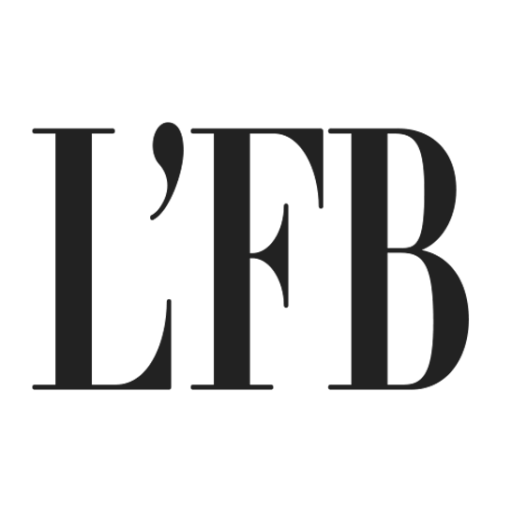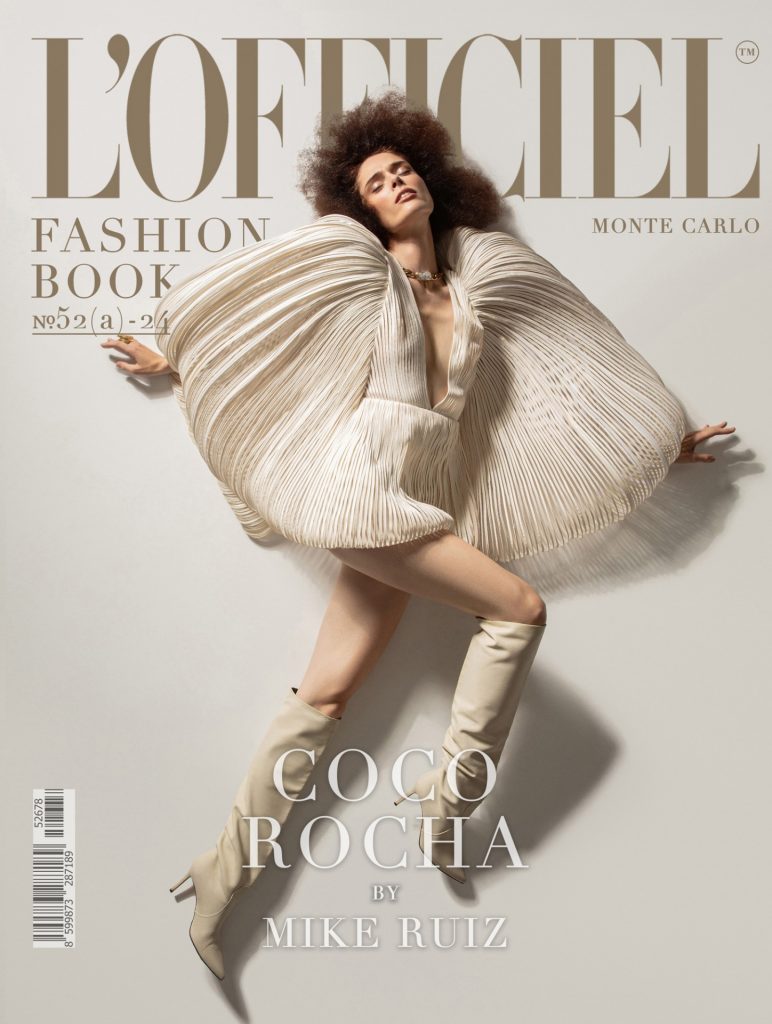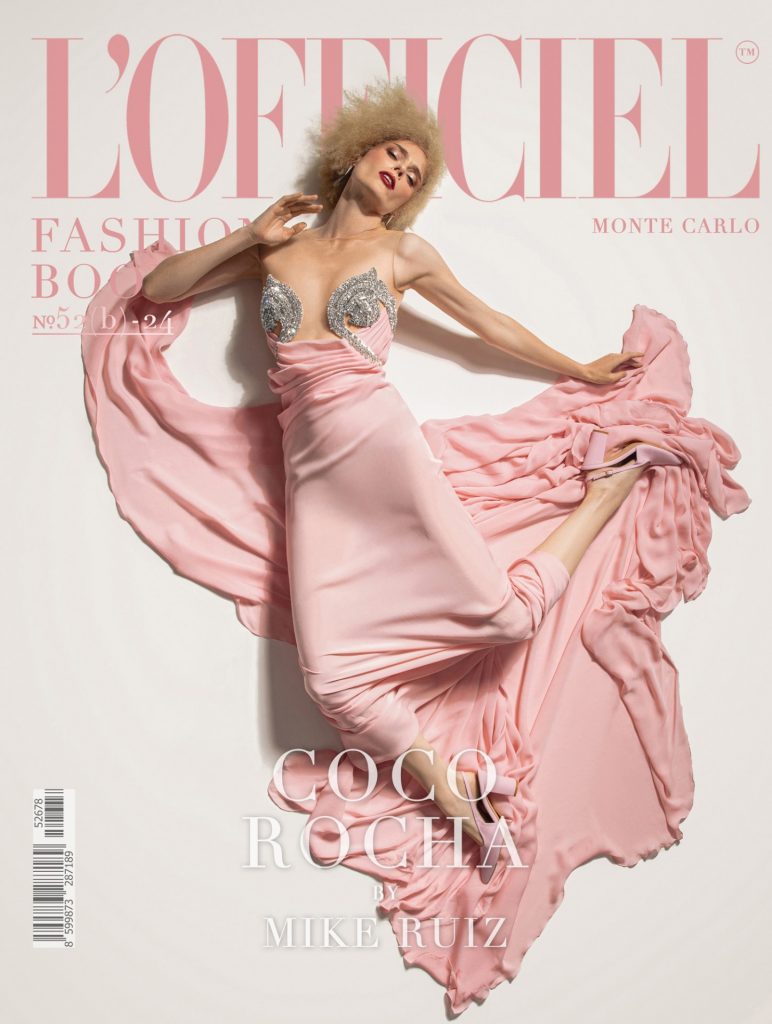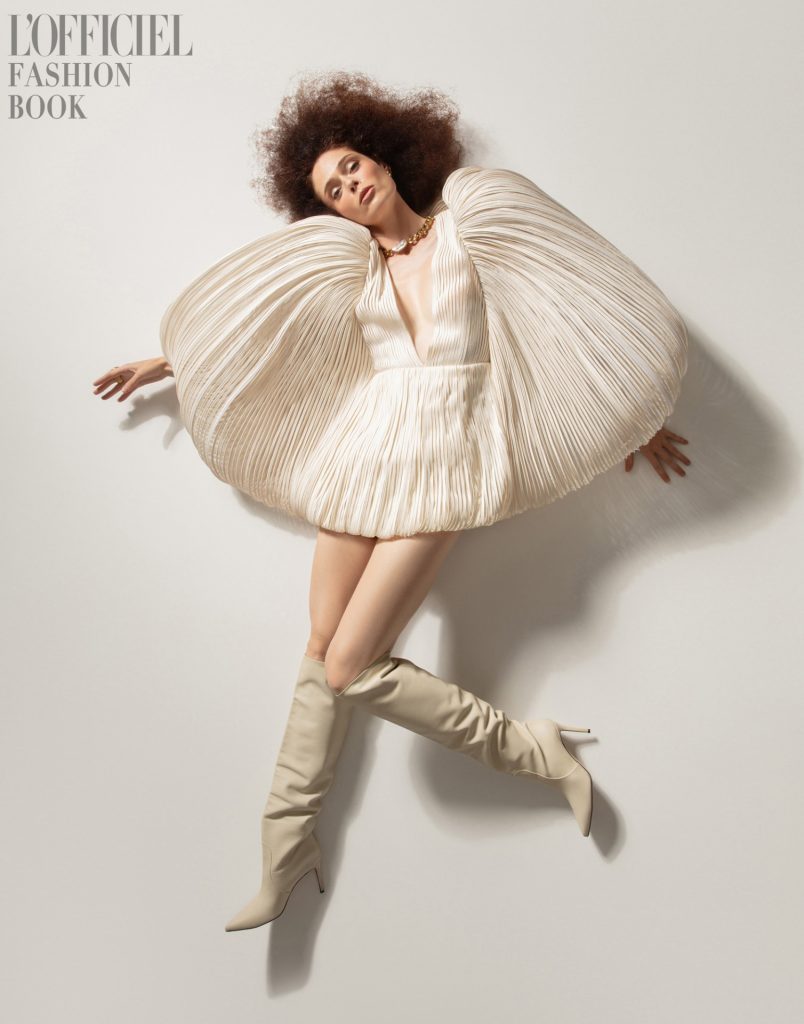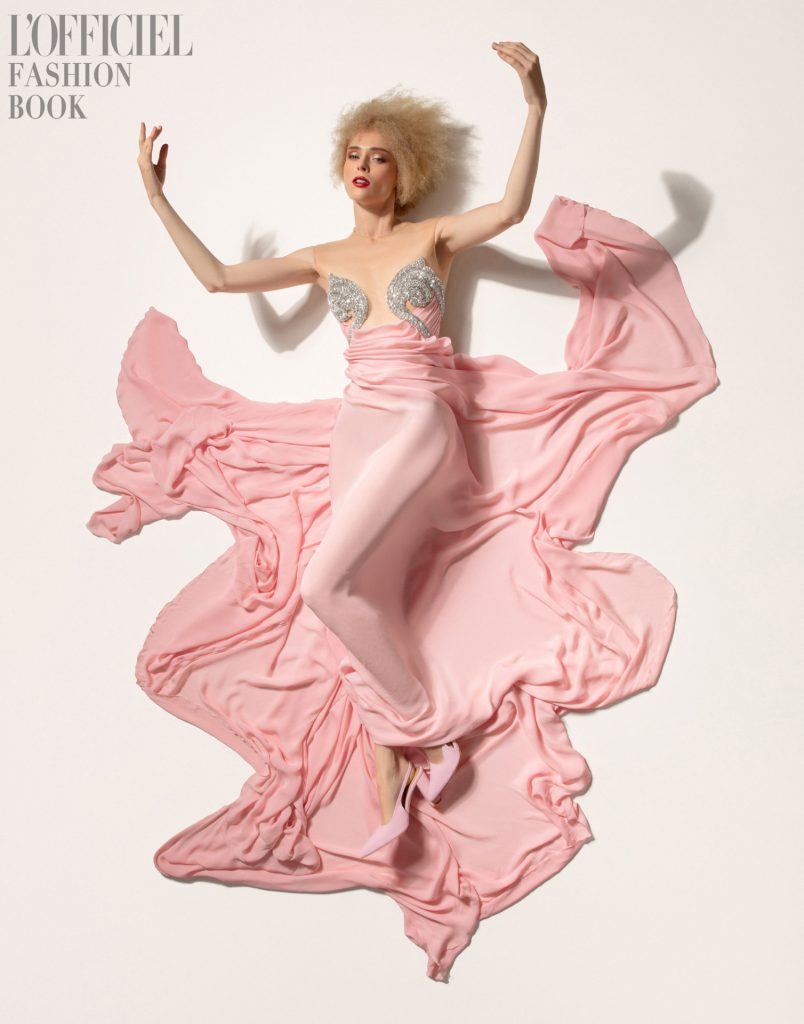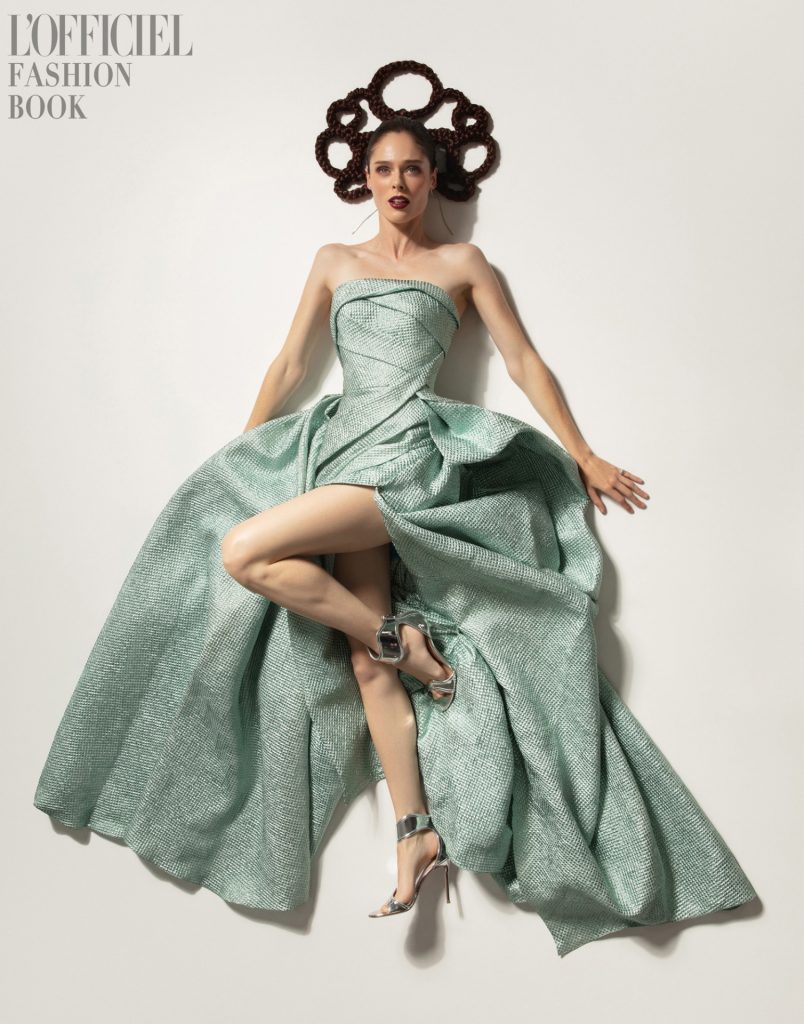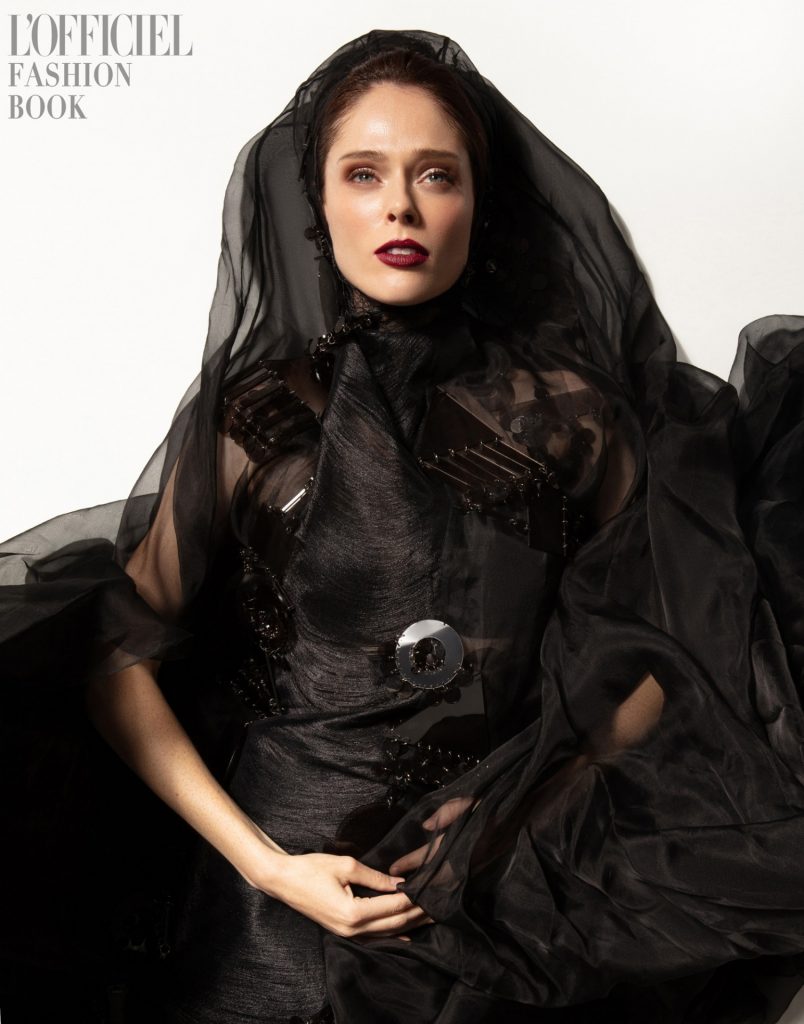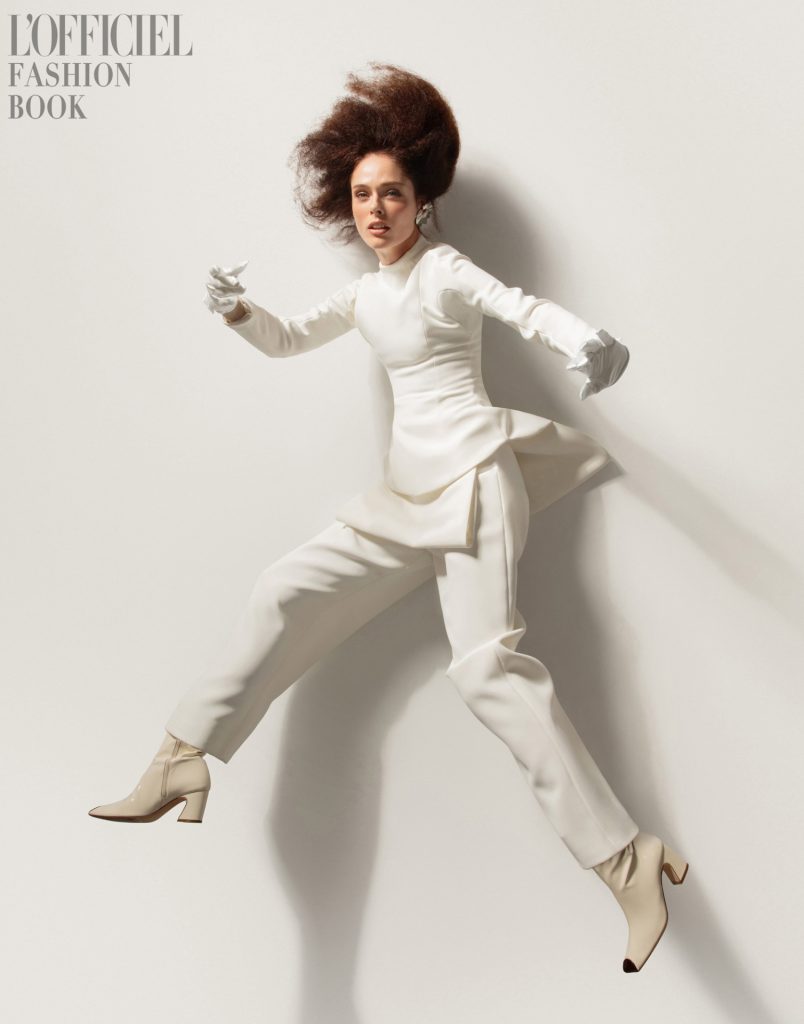Coco Rocha
Photoshoot / Interview
photoshoot
Talent: Coco Rocha @cocorocha
Photography, Creative Direction, and Production by: Mike Ruiz
Editor-in-Chief: Dimitri Vorontsov
Fashion Stylist: Alison Hernon at Exclusive Artists
@718blonde @exclusiveartists
Hair: Carolyn Cina @carolynrosecina
Makeup: Corey Crysler @coreyjasoncrysler
Graphic Design: Daniel Alarcon Design @by_danalarcon
Assistant to Photographer: Dani Sax @danisaxphotos
Assistant to Fashion Stylist: Moises Nunez
Tailor: Cole Sudduth @ _colerenner_
Fashion Market Assistant: Romi Bachar @romibachar_
Styling Interns: Atėnė At @ateneat + Ava Spencer avaspencer_
Special Thanks to: Love Studios @lovestudiosnyc
interview
by Dimitri Vorontsov
Dimitri: Can you tell us about your startup’s involvement?
Coco Rocha: I grew up in a generation of models where you’re trained to think that the whole purpose of you or it feels this way, is to please other people. So in the sense of it, you’re going to do these photoshoots and you’re going to create some beautiful art. But all in all, when the time was up, you know, off you go. We’re going to find your replacement. There will be nothing meant in this harshness. It’s just a matter of fact. New models come, the old ones go, and you probably marry someone from your local town, and you move on. And you once said you were a model. And I started dating a boy, who now is my husband of 15 years, he was an artist and still is, but he was also very entrepreneur and thought, well, you have something here. At the same time, we have this new thing called social media that is arising, and, you know, 1 plus 1 equals 2. You know, a model didn’t get to be outspoken, so why not start talking about things you are interested in? And that might sound so blase now, of course, but not back then, and started to discuss things that I was interested in, things that I loved. Various companies began approaching me: “I heard you are into this subject, and I hear that you like this thing”. So I would say that that’s how my involvement was and, especially, again, having this boy who saw a business in my career. When we got married, one of my managers was stealing from me. So James after becoming my husband started to manage me for the last 14 years with his sort of leadership of our company.
Sometimes it works, and sometimes it flops. But I think that that was always going to be the next step. If modeling was going to stop, which is still doing great, then at least we kept going in these other avenues that we were also very interested in and passionate about. It just makes no sense, especially to come from that generation of putting everything in that one basket and hoping that this career was going to be long-lasting. The models that have had the same sort of, journey, if it works for them. Trying new things and put and not assuming that the career of a model was going to be the whole thing.
Dimitri: Do you feel the artistic approach to the modeling?
Coco Rocha: A lot of artists alike, I think of modeling as an artist but I think a lot of artists think it’s a faux pas not to see yourself as a business or try to grow. I mean, we’re in the business of making money too. Sometimes people say: “I can’t say that or I can’t have to tell people”, you know, I love the experience and the journey. I am also in the business of making money. We’re also in the space of just building brands that hopefully monetize at the end of the day. I don’t want to be like my parents who worked till the very last minute, and now they’re retired.
Dimitri: We both started in the early 2000s, social media was not present at that point or it was just such an early days, it was still Myspace…
Coco Rocha: Yeah. Exactly. That was me.
Dimitri: You embrace social media more than other people and use it rather differently.
Coco Rocha: I would like to go back to that moment of having this new boy in my life. He seemed to look from the outside into this industry and was very confused about why there was such exclusivity and why people couldn’t be part of these sorts of groups. And why was it so difficult to be part of the inner circle? Why is there an inner circle? And he was, why don’t you share a little bit of your life to show them that it’s really not that special? Why don’t you just give them a little of reality, like, what you watch at night or what you eat for breakfast? It was just so simple. But when I started to post these simple things, it was fascinating how many people in the industry were like, you have to stop. This is not a good look, you’re supposed to look so unattachable and, you know, you can’t even achieve your success, and here you are showing them your cereal bowl. And the one thing we always said as a couple, and we still do, is if you can’t answer the question “why”, then we probably should go ahead with it. So, well, why not? And the answer usually from the industry has always been, well, this that’s “the way” things are. And so that what you don’t change and, of course, we know from history.
Of course, we change to be better people, to be better for ourselves, so this seemed very practical at the beginning. Now we know it’s so smart for your businesses. It’s so smart if you have a point of view that needs to come across. And I would say it was a big point in my career. One morning I woke up, there was someone who wrote an article about my body on it was the cover of The New York Magazine, and it pretty much said that this model was too fat for the runway. In my generation, I was considered, the curvy model, or the word that was always used was “fat model”. And I had, for so long, had to keep that to myself. Well, that’s what they think of me. But now I had this platform, and so I wrote this essay, this is going to be the first time you hear someone talk about it. Because right now, you know that I could write about our interview later and be like, actually, that’s misquoted. Back then, they could write whatever they wanted. No one’s going to know and ask a little model out of nowhere if that was correct.
A big deal on social media to see a model say something, out of left field, and that’s when I realized this is something important. So you’re right. I don’t enjoy social media. I find it very frustrating. It’s a lot. You think that you do so much for this post, and then in the end, it did nothing. It quantifies to 0. No money, no value. But in the end, we have to do it. We have to tell the narrative of our careers. We have to sell the businesses and the brands. And through it all, as a model, that’s advertisement now. It’s not billboards. It’s not magazines. It’s social media. So, yeah, we’re going keep this going, but, I think it’s so crazy when I hear new models say I’m private or I don’t use it. And I’m thinking, but you’re an independent contractor. That’s what we are as models. So you need to public you know, produce these images out there to let people know that you are working. You’re ready to do the next job. So, yeah, it shocks me how people have gotten very lazy with it because they don’t think it’s they’ve had it always, so it’s never going to go away. It’s been fascinating, and you’re so right. It started in Myspace. And here we are where, like, I’m talking to you on my phone, face to face. These things keep changing, and we know, like, soon comes AI, soon comes things where we don’t know what’s happening next. But I’ve always believed in embracing the new and learning from it early so that when things do change drastically, we are the first to get an understanding of it. So this is where I feel like we are again. AI is scarier than social media, but we’re at that point again where it’s time to learn. It’s time to pay attention and start learning.
In our model camp, they ask, “Are we even have a job in the next few years?” And I don’t have a crystal ball. I don’t know. But the one thing we do say is AI is a tool. Like other tools, you can either build something and it could be the most fantastic thing, or you can take a tool and destroy things. So it is up to the consumer to tolerate things, but, also, it’s up to the creators to use it in the most inspiring way instead of being too lazy and using it to to destroy, honestly.
Dimitri: I’m glad that you always ran outside the system. You never wanted to be part of the fashion society because I did exactly the same thing. A decade later, it’s you and just a few others who embraced it, took it to the next level, and continued with the business opportunities that arose. You know? It’s amazing. I applaud you.
Coco Rocha: Thank you. Thank you. We’re we’re still trying.
When we do homework with my kids and I have no clue what’s going on. But I look at their paper, and I’m like, why is there not even why haven’t you erased something? Why is it still clean? And then, like, you didn’t even try. I don’t care if it’s I don’t care if you failed, but at least I can say you tried. And that is my motto in anything. Like, when a model says, oh, I’m giving up. I’m like, well, did you even try in the first place? Did you even give an ounce of a chance? And if you answer me no, well, then maybe you don’t deserve it. Maybe let someone else who’s willing to try. So, yeah, that’s all we can do is try.
Dimitri: These days you don’t see people posting on social media without retouching or face tuning, shaving off a few pounds, and making unrealistic expectations of themselves. How do you feel about it?
Coco Rocha: When it comes to our job as a model we are to produce imagery, and the imagery is allowed to be kind of fantastical. Right? It can have a wow factor. That’s so beautiful. That’s so fascinating. But there is a line where it can be crossed and where now it’s like, are we selling, an idea of this is perfection? And that’s what my problem has always been there’s only one type of perfection. So if that’s skin color, body size, height, age, belief system, or morals, then we have a problem. Is it okay to have a unique perspective like that? For example, I am a skinny white woman, and that’s okay. But, also, it’s not OK if that’s all I see in the magazines. Now diversity needs to be not just a buzzword, but we do something about it because you’re right. People will look at these images and think, what’s wrong with me? Why am I not good enough? And it has gotten so bad that on social media anyone can readjust their bodies, change the background, change the eye color, whatever, put on makeup when they have no makeup, and they start to believe that that’s how they look. And I’ll give you an example. I went to an award show Okay. And everyone was getting an award. We will keep it nameless, but everyone was getting an award, and you would see their pictures pop up behind them before they came up. And I’m like, wow. This person’s gorgeous or this person’s so cool. Oh, we’ll look at there and then they would go up, and I’m like, that’s not that person. And it was good 15 people in a row that they sold themselves as something else that when they went up, I think people were like, wait a second this isn’t even real. Like, the what they’re selling us and what they’re winning awards for wasn’t even really remotely, who they were, but they believed it. Like, they truly believe they look like that. So I think we’re in this warped face-tune world that we seem to think that that is us now. So that’s why I think AI is working because, honestly, the characters and the people that are coming out, they’re more flawed than we are. We look like robots. We almost look too perfect. Whereas these AIs are like, here’s what you should look like.
I think we live in a very confusing time, we don’t know our narratives. We don’t know even what is real. We just do it because it’s too easy to do it. So I do appreciate the countries that are taking a little more time and effort saying, use it but you have to say underneath that you are using it. And I have used Facetune. I use AI to clean up a background. I love it when people are like, you’re in Paris, and no one’s behind you. That’s it. I want my pictures to look pretty and interesting, so I’ll use these things which I call cleanups. And that’s what Photoshop always was. It was a cleanup. But we have now, like, we’ve crossed the line. So I think it’s important that just young people that look at our images recognize that, yeah, they did do something with a photo, and that’s okay if they want to, but it does clearly state this was edited. Just like in, England, you cannot sell mascara, without if you’re going to put fake lashes, you have to write in the advertisement that there are fake lashes in this, or you have to say the percentage of fake hair when you’re selling a shampoo or a product in certain countries.
These rules have been applied long before social media, how people when they sell an image, if it’s real or not. So I’ve lived in this. I’ve had a sign saying my hair was red for this L’Oreal campaign and I can attest to it. So I have no problem with those sorts of markings because honesty is it you know, these these kids that are looking at pictures at least will feel a lot more relaxed going, oh, okay. Cool. It’s not just me. Like, there are flaws in everyone, and that’s fine. But it doesn’t hurt to take a photo and be okay with yourself too and that I find at model camp when I have girls come and boys come, it is shocking how when they see themselves in a photo, they go, oh, I don’t like that or that’s not me. And I go, but that is you. It’s just you without a a Photoshop filter over it. So there we are reprogramming ourselves to be ourselves again.
Dimitri: Absolutely. Can you tell us more about your Model Camp?
Coco Rocha: I used to train models in agencies in New York. So an agency would call me in and say, this model needs some runway coaching. Can you do it? In fact, in a day, I will be going into an agency and training the upcoming season girls. And so that’s something I’ve always done. But then when I open my modeling agency for the reason of well, I’m sick and tired of how management works in our industry, so I’m going to showcase to the clients how to be a good manager. You’re going to have great models. But doing that little turn made the other agents go, well, I’m not going to call you in to train the models because I’m fearful or whatever reasons. You have an agency, so why would I bring you in? Which is fine. But it made me go, okay. I’ve always wanted to train models, that aren’t necessarily in the top five agencies of New York. I wanted to do it worldwide, but I never felt I had the guts or the right to do that. What am I teaching you? Confidence. I thought with my husband who was already doing my management, and doing my social media, maybe there’s something to it where we train models runway and pose and photoshoots, but behind the scenes. And that’s what was always missing. When I started, there was no one saying, hey. By the way, avoid all of these pitfalls, and you’ll be okay. And try to learn about your taxes early on, and maybe you should learn about your accounting and, you know, what it means to write off, whatever these things were. And then not just the business, but, how do I keep myself safe? How do I make sure that I’m going to be okay when I walk into a room that I won’t be abused mentally, physically, or emotionally? Then we thought we have something here, but will people come?
Crazy thing that this week it will be 6 years of model camp. We’ve had over 5,000 models around the world come. We thought we were going to do one camp, and that was it. So we are on camp 139, I believe. Oh. And, roughly, that is 30 to 40 models per camp and, we do them every 2 to 3 weeks.
It is a huge responsibility in the sense we have to be here. We just came back yesterday from a trip with our kids in Europe. We need to be back here so that we can start the next the next camp. And, it is something I’m I feel fulfilled in training, whereas I think, young me would have been shocked to hear this is something I would do because back then, we just thought the next generation was our replacements. So why would we help them? Because they’re just going to come and take it from us. Now I still have the same mentality that they are our replacements but wouldn’t it be great that instead of us being looked at as competitors, we are more of a brotherhood and sisterhood, and potentially, wouldn’t it be great to think that we can have multiple, generations working at the same time that it isn’t? So, you know, just for the young. And the young are appreciative that the older are helping. So I think all in all, it has made it so that I have more purpose than just being the model that can pose. And that’s very fun to be known as that, but isn’t that my job? So, to be the big sister is even a better hyphenator, you know, big sister slash mentor slash mama bear.
